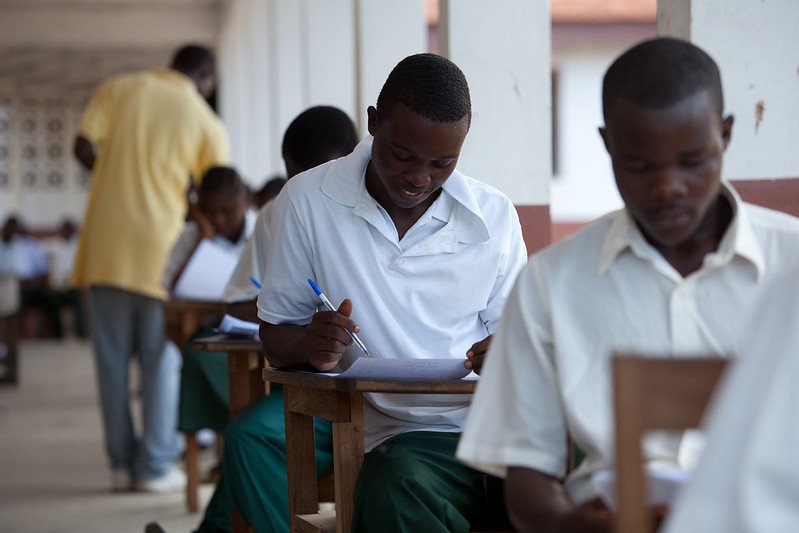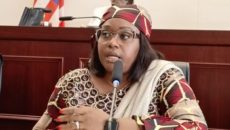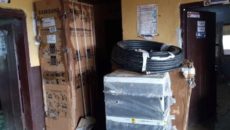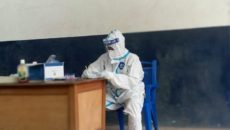MONROVIA, Montserrado – The World Bank has partnered with the Liberian government to launch a new effort to improve results at the secondary level of Liberia’s education system.
The project, Improve Results in Secondary Education, otherwise known as IRISE, is a US$47 million effort sponsored by the World Bank through a grant signed with the government in July 2019.
The program, which officially kicked off on October 15, 2019, takes a systems-based approach to address the fundamental issues and challenges facing secondary level education in the country. The grant will focus on improving the quality of secondary education services, especially for adolescent girls.
At the official launch ceremony on February 27 in Monrovia, World Bank Liberia Country Manager Khwima Nthara stressed the importance of the project, noting that it seeks to address education, one of the most critical pathways to poverty reduction and shared prosperity.
Nthara said when people are educated, they are empowered to take advantage of various income-earning opportunities and are better equipped to deal with various other challenges in their lives.
“Education is, therefore, one of the key foundations of human capital development,†he said. “The statistics on human capital development are not very flattering for Liberia.â€
Liberia’s Human Capital Index, a composite index based on measures of health, education, and nutrition, notes that a child born in Liberia today can expect to live up to the age of 62, benefit from only 4.4 years of schooling, and be only 32 percent as productive as they would have been if they had access to full health and education benefits that would have allowed them to reach their full human capital potential.
Nthara said Liberia has still made progress in education in the past decade, as demonstrated by the doubling of student enrollment and increased levels of the teaching workforce, although several prevailing challenges remain, including access to senior secondary education.
“Access to senior secondary education is still low and inequitable. For example, only 15 girls out of every 100 girls who begin primary school advance to senior secondary school,†he added.
“Even when students manage to progress to senior secondary school, retention and completion rates are still very low, especially among girls and the rural youth.â€
He stressed the need for a relevant curriculum that conforms to the needs of the modern labor market, which he noted remains an issue.
“The quality of education in terms of learning outcomes remains poor. This is evident from the poor results in the annual West African Senior School Certificate examination,†he stressed.
“This needs to change since senior secondary education provides a critical foundation for the development of skilled workers.â€
He believes that people cannot be truly empowered if they have not attained more than primary education. According to him, the country’s economic transformation will critically depend on having a skilled workforce.
The World Bank country manager said the IRISE initiative would support the government’s efforts to improve senior secondary education in the country, through the improvement of equitable access and creating a conducive learning environment by constructing more classrooms and supporting girls to complete their education. The program will also upgrade teacher training and provide quality teaching and learning materials while developing the digital skills of graduates.
“The arrival of the fourth industrial revolution, driven by digital technology and artificial intelligence, is creating an opportunity for us all to think differently about our traditional education system and prepare students to become workers of high levels of competences and skills,†he also said.
“Through a set of innovative interventions and a results-based financing mechanism, the project is expected to bring system-level changes and improvement to secondary education in the country.â€
The project targets approximately 140,000 students and 6,800 teachers and will aim to improve the learning environment of 156 public and community senior secondary schools and provide scholarships to least 3,000 girls.
Nthara said the project would be results-driven, as the benefits would be visible to all.
“These results can only be achieved through our continued close collaboration in the project implementation,†he said. “Dedication, sustained investment, and continued reform are required.â€
Nthara stressed the urgency for countries in Africa to push for interventions that can accelerate the development of the continent’s human capital.
“Business, as usual, will not lead to results,†he noted.
CORRECTION: A previous version of this article incorrectly stated that project would kick off in August 2020. On the contrary, the project began in October 2019.
Featured photo by Bruce Strong/Together Liberia



